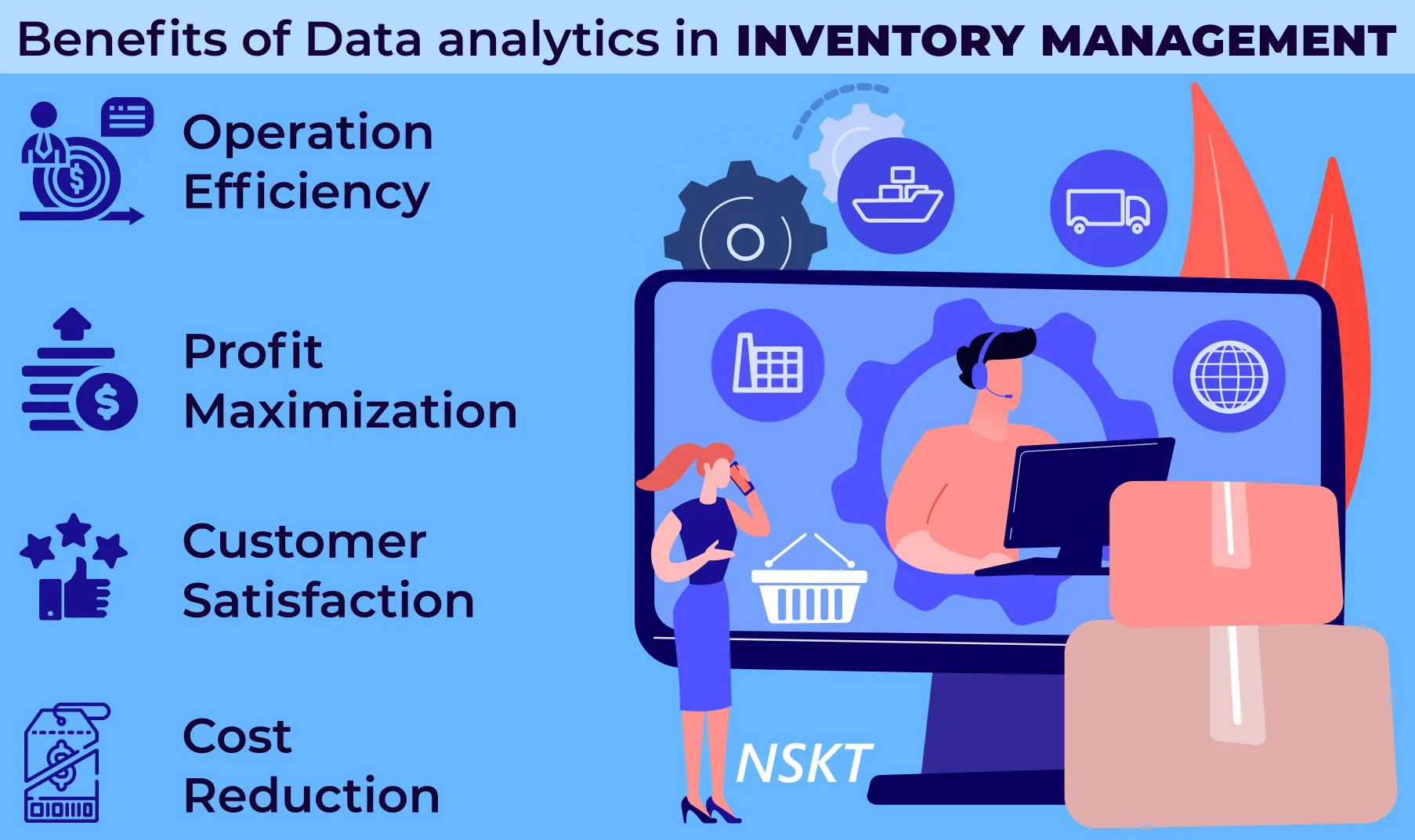Table of Contents
Inventory management is one of the most crucial parts of managing the business. It involves having the right inventory, in the right amount, and at the right location to meet the needs of the supply and demand of materials and parts provided by the company. It helps in building the right balance between the services of the company and inventory.
Data analytics is the process of sorting out structured and unstructured data sets in order to provide real-time and up-to-date information that can help the company in succeeding.
Inventory management with and without Data analytics
An effective software for inventory management helps in processing a vast quantity of data from past sales and anticipate future demand for your inventory by also keeping in mind the Seasons and lead times of your business. Earlier balancing the product availability against the anticipated market demand was a difficult task for any kind of business, but with the help of Data Analytics inventory management became advanced and demand forecasting became possible. Data analytics also provides insights into customer behavior. performance of the product, and performance of the channel. These all are made possible for all kinds of retailers including retailers with huge databases and helps in managing everything including the availability of stock, demand of sales, and product returns. Analytics provides insights and reveals patterns and trends of the following:
- The requirement of inventory to meet the demand while maintaining the minimum stock level
- optimization of stock management
- how to reduce the impact of recalls of product
- enables cross-selling to improve the sale of less demanding stock
With the advancement in Data Analytics, these insights are likely to become even more accurate and advanced.
Use of data analytics in Inventory management
Data analytics help in providing insights into patterns and trends that can be leveraged to improve business operations by properly managing the inventory.
- Improvement in operation efficiency- With the help of data analytics operations managers can have a real-time view of the operations and a better understanding of the metrics. This helps in getting rid of all the bottlenecks which helps in improving the efficiency of your sales. Big data also enables supply chains to proactively enhance performance when compared to traditional models. Effective inventory management that involves data analytics helps in resolving the following problems which will help in operation efficiency improvement:
- It helps prevent stockout
- It helps prevent overselling of products
- Helps speed up the process of order fulfillment
- Sales and profit maximization- In the wholesale industry, it is very much important to have access to real-time data which helps in managing the sale with a tight profit margin with the help of greater insights. This also makes sure that the company can earn great profits with the help of investment in stocks that are getting higher sales along with high demand. This way makes stocks always gives more sales opportunity with the help of data analytics.
- Increasing customer satisfaction- The real-time data gained with the help of data analytics helps in understanding the main reason behind the sale of a certain product or the reason behind the return of certain products. This helps in making efficient business decisions. Data can also be used to predict seasonal trends, spikes, or depressions in demand of the customer to make sure that the right level of inventory is maintained at all times to meet the needs of increasing customer demand in seasons. Data analytics also helps in increasing customer satisfaction through certain different ways such as:
- By improving product description
- Keeping an eye on the shipping box and making sure that the right product is being shipped.
- Switching to a reliable carrier service
- Making the process of return and exchange more efficient to improve customer satisfaction.
- Reducing shrinkage of inventory- Shrinkage of inventory can take place due to many reasons such as theft, damaged stock, or obsolescence and miscounting. The inventory management process that takes place with the data analytics helps in preventing these losses. With the ability to track the movement of inventory as well as the person responsible for the movement reduces the risk of warehouse theft. Regular counting of subsections of inventory helps in identifying the inventory discrepancies.
- Cost reduction- Inventory management with data analytics surely helps in managing the cost factor of the inventory. The most costly part of inventory management includes:
- Logistics and Warehousing costs including rent, labor, utilities, inventory management fees, and the cost of shipping goods to customers.
- Materials handling costs from buying or leasing equipment to labor for operating several heavy machines.
- Total Capital, or the total cost of purchasing inventory. This may include the actual cost of inventory, financing fees, loan maintenance fees, and interest.
- Storage costs.
- Risk-holding costs like inventory depreciation, obsolete stock, shrinkage, and the impact of stockouts.
- Insurance costs.
These reasons are enough to make you realize why it is important to stock the minimum inventory possible. Identifying and eliminating waste in the form of the costs accrued from holding inventory is very much important to help cut a lot of prices. This can be done only with the help of real-time inventory data visibility, it helps forecast demand and determine safety stock levels and reorder points. This also helps in pinpointing which products are unnecessary and can be removed from the inventory.
NSKT Global is one of the Top Data Analytics firm UAE and USA which helps in data analytics and provides assistance to companies in managing the inventory with the help of data analytics. Data analytics helps in transforming inventory management capabilities, reducing costs, improving operational efficiency, maximizing sales, increasing customer satisfaction, and reducing inventory shrinkage.







